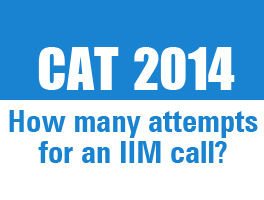The case method of teaching is a hallmark of the management courses offered at IBS.
In an MBA, students learn to enhance their skills in analyzing situations, develop managerial judgment, and understand what needs to be done in different circumstances.
A good lecture may enhance the knowledge of a student but cannot hone a student’s management skills. Even if students have the knowledge, they might not be able to relate it to an actual business situation. Each managerial situation is unique and requires its own diagnosis, analysis, and unique management actions. This is where case studies come into the picture. Cases provide students with a valuable way to test and develop their managerial skills while grappling with real business problems.
While the case method of teaching is one of the most enduring features in Management education, dating back more than a century to the Harvard Business School – in India, except a few leading B-schools, this method has not been widely adopted. One reason is that the costs associated with running a case-based program can be prohibitive for most B-schools. However, this is one area that IBS has clearly differentiated itself.
A core strength that supports the case method of teaching at IBS is its case development initiative. Started in 2000, the institution has pumped in significant resources to become one of the world’s top B-schools in terms of case development. IBS now has a repository of more than 5,500 internationally-benchmarked case studies that are not only used at IBS but also in a number of leading B-schools across the world including London Business School, London School of Economics, HEC Montreal, HEC Paris, Manchester Business School, Zurich University, Cranfield University, etc. These case studies are also used by leading consultancies such as McKinsey, KPMG and the Boston Consulting Group, as also a number of corporate houses in their training programs.
The quality of the case studies can also be gauged from the fact that IBS has won a number of highly prestigious international case writing competitions organized by the Academy of Management (AOM, North America), Association of MBAs (AMBA, UK), The Central and Eastern European Management Development Association (CEEMAN, Europe), European Foundation for Management Development (EFMD, Belgium), Emerald Group Publishing (UK), North American Case Research Association (NACRA), oikos International (Switzerland), The Case Centre (formerly European Case Clearing House, UK), John Molson School of Business (University of Concordia, Canada), AESE Business School (Portugal), etc. Many of the IBS case studies are reprinted in global editions of textbooks in Management by leading authors and publishers.
Behind IBS’s success in case writing is a streamlined process that has been developed and refined over one and a half decade. The objective of the case initiative is to develop cases that a teacher would love to take into the classroom. Not only are the cases of contemporary nature, they are tightly mapped to the theories and concepts in different Management subjects. Special efforts are taken to ensure that the cases also weave in multiple perspectives and help the students consider the ethical, social and environmental dimensions of their decisions.
Identifying gaps in the syllabus and finding suitable contemporary issues in the industry on which cases can be developed is an ongoing process at IBS. This helps bridge the student-teacher-industry gap by ensuring that our faculty resources and students remain abreast of the changes in the dynamic environment.
As they prepare numerous cases during the program, the students at IBS get exposed to different industries, different organizations, and the issues and challenges faced by managers in organizations and the way managers actually do things. Rather than adopting a passive role in the learning process, they are forced to step into the scene of action and into the shoes of the manager and challenged to come up with their own recommendations and plan of action. This helps reduce the gaps between the student and the industry and helps IBS churn out industry-ready professionals, leading to the students getting excellent placement opportunities.
Case development is an institutionalized process at IBS. So once the case trigger and the subject organization are identified, data is collected and cases are developed following stringent quality norms. There are multiple levels of quality checks that the case goes through culminating in the case getting tested in a classroom. Once the case is ready for publication, it is distributed through IBS’s own channels (www.icmrindia.org and www.ibscdc.org) and also through the UK-based The Case Centre, the world’s largest repository of case studies. The popularity of its cases internationally has made case development at IBS a self-sustaining initiative. This also means that IBS has gone against the grain, to develop one of the world’s finest case development centers based out of India.
The fact that other leading B-schools across the world are regular users of our cases shows that our students are taught with cases that are internationally benchmarked and helps IBS churn out well-rounded professionals who are ready to join the global workforce. In addition to the many benefits to IBS students, the B-school also caters to the corporate requirement for quality manpower and also works towards national development in a way that India can reap the benefits of demographic dividend. This has made IBS a leading player in the Management education scene in India and helps it attract thousands of students every year.
In case you have questions about Case Method at IBS or any other questions – please post your queries comments or feel free to write to online@ibsindia.org











Hello sir
MAT sept 631.5 composite and 79.23 percentile , Nmat 170 score
10th 68.66% , 12th 65% B.E 67.21 % and M.tech 8.61 cgpa out of 10
Work experience 21 months. Which Colleges should i target based on current score?
Shrikant, pardon the delay. I hope you got some good calls this year.
Hii sir I have got confirmation for admission in ifim banglore, ibs mumbai, itm mumbai, Asia pecefic and jaipuria noida ,can you Plas confirm which one is better for finance and I have to do mba this year because I have already lost 3 years after 12th due my health issues due to which I did my graduation from du sol as a result I got regeneration from xime banglore balaji pune and imt nagpur. Can you please confirm which one is better and I am also confused about pgdm and pgpm in ibs mumbai.
tushar, you should consider IFIM Bangalore among all the options.
Hello sir,
I have converted sibm bengaluru, ibs hyderabad and imt nagpur. which one,according to you should i opt for???
Samir, please make a choice after considering the post Jayein toh jayein kahaan 2016: Which Institute?.
I have been selected for IBS HYDERABAD campus. I wish to do mba in finance. Is it worth going there?? I am a fresher. Making into top 10% of the candidates so as to bag the highest pay, is it difficult amidst soo many students? Or should I consider going welingkars at mumbai or dalmia or sies college?
Sumit, since you are a fresher you can try to target better B-schools. Take CAT’16 . Good luck!
however, you can check the article Jayein toh Jayein Kahan for order of preference.
sir i got ibs hyd this yr.i have job experience of 13 months.so is it worth joining?i left my job now
Avipsa, where were you working and what other options do you have?
If possible please share your academic profile, scores in the MBA entrances, package and the possibility of picking up another job.
Sir, IBS or XIMB(rm). I am worried about the placement scenario as both the colleges have huge batch size, also ximb has increased its intake to about 660(all branches). Will it be good for my career to pursue rural management from XIMB in terms of placement or should I drop 1 more year for cat preparation?? Thanks you
Pratik, ideal scenario would be to pick up a job (if you dont have one already) and take CAT next year.
Sir i got a call from ICFAI HYDERABAD for GDPI, I want to do my MBA in Finance, can you say is this B-schol is best for Finance regarding Placement. As soon as possible please reply me.
Soumojit, it is a decent B-school for Finance. However, if you have a job, you can consider going for CAT again next year.